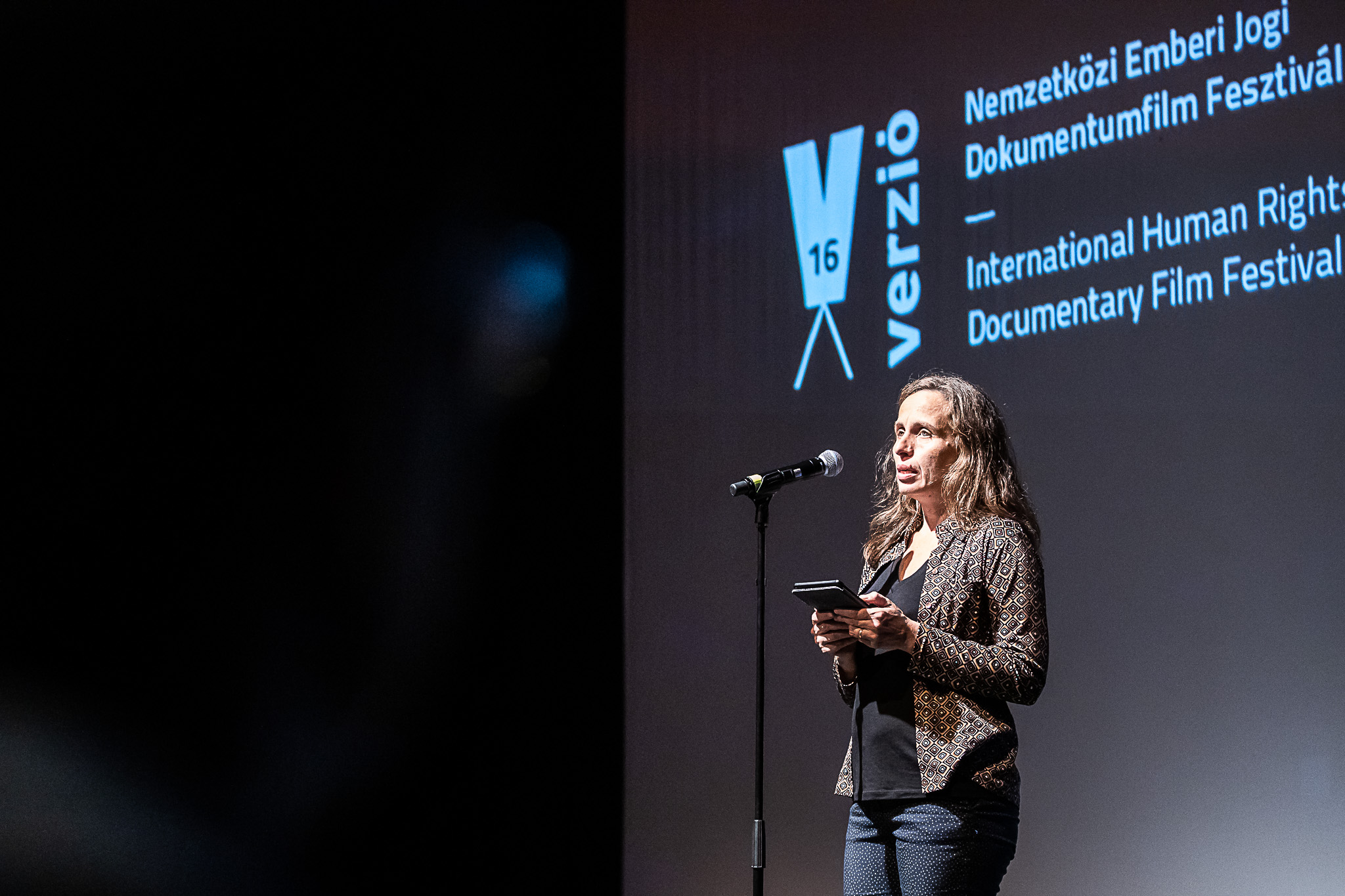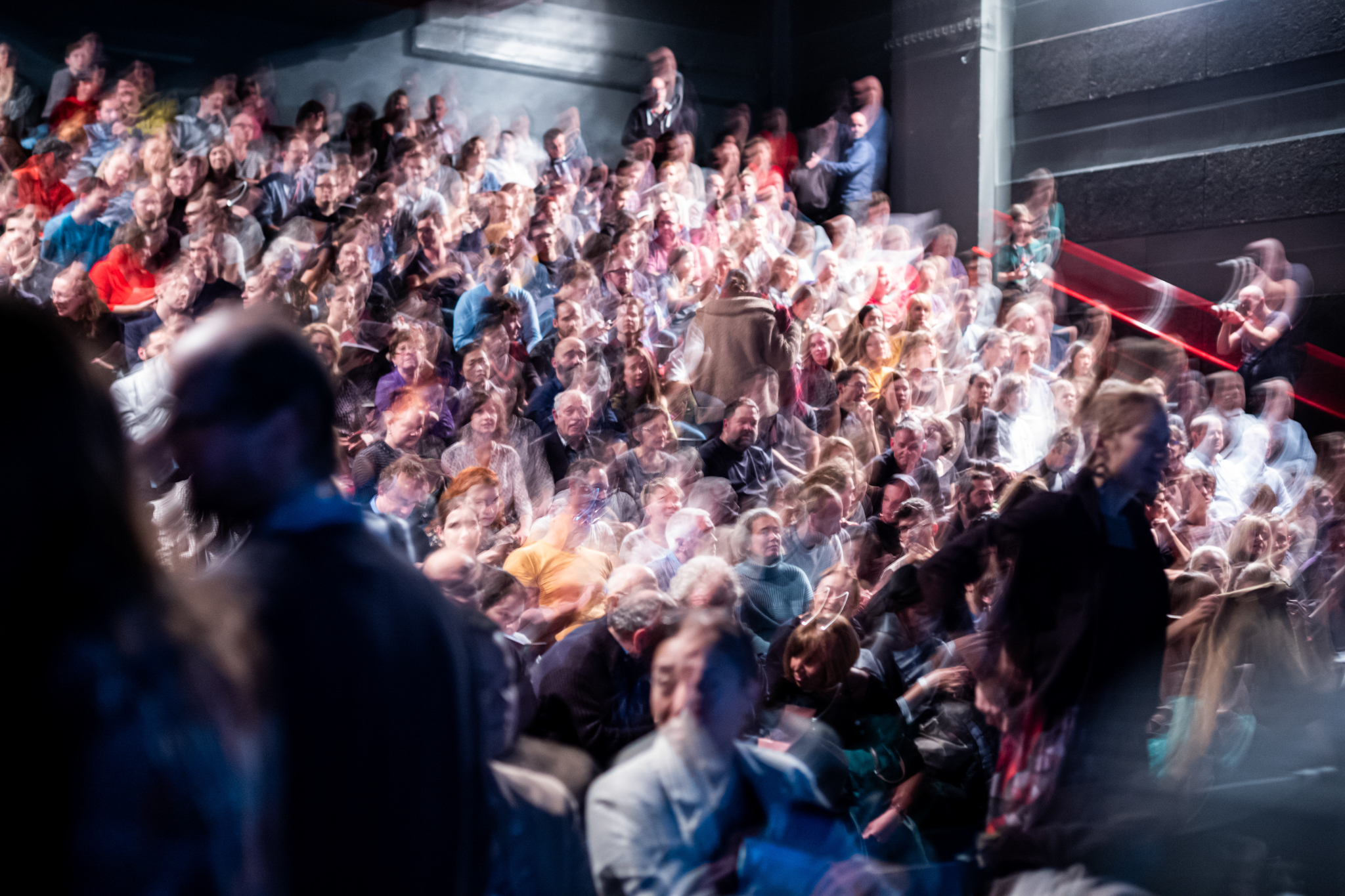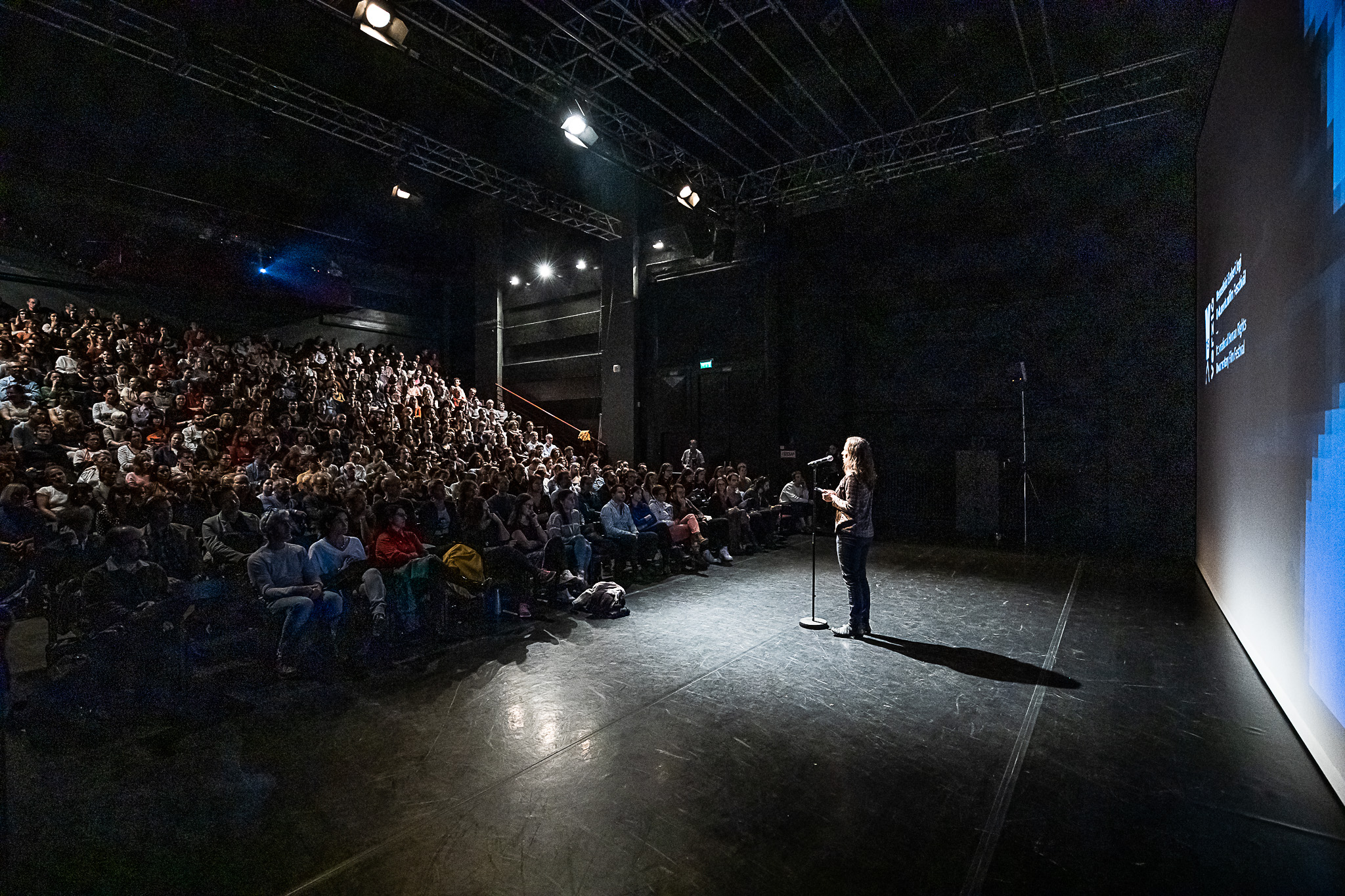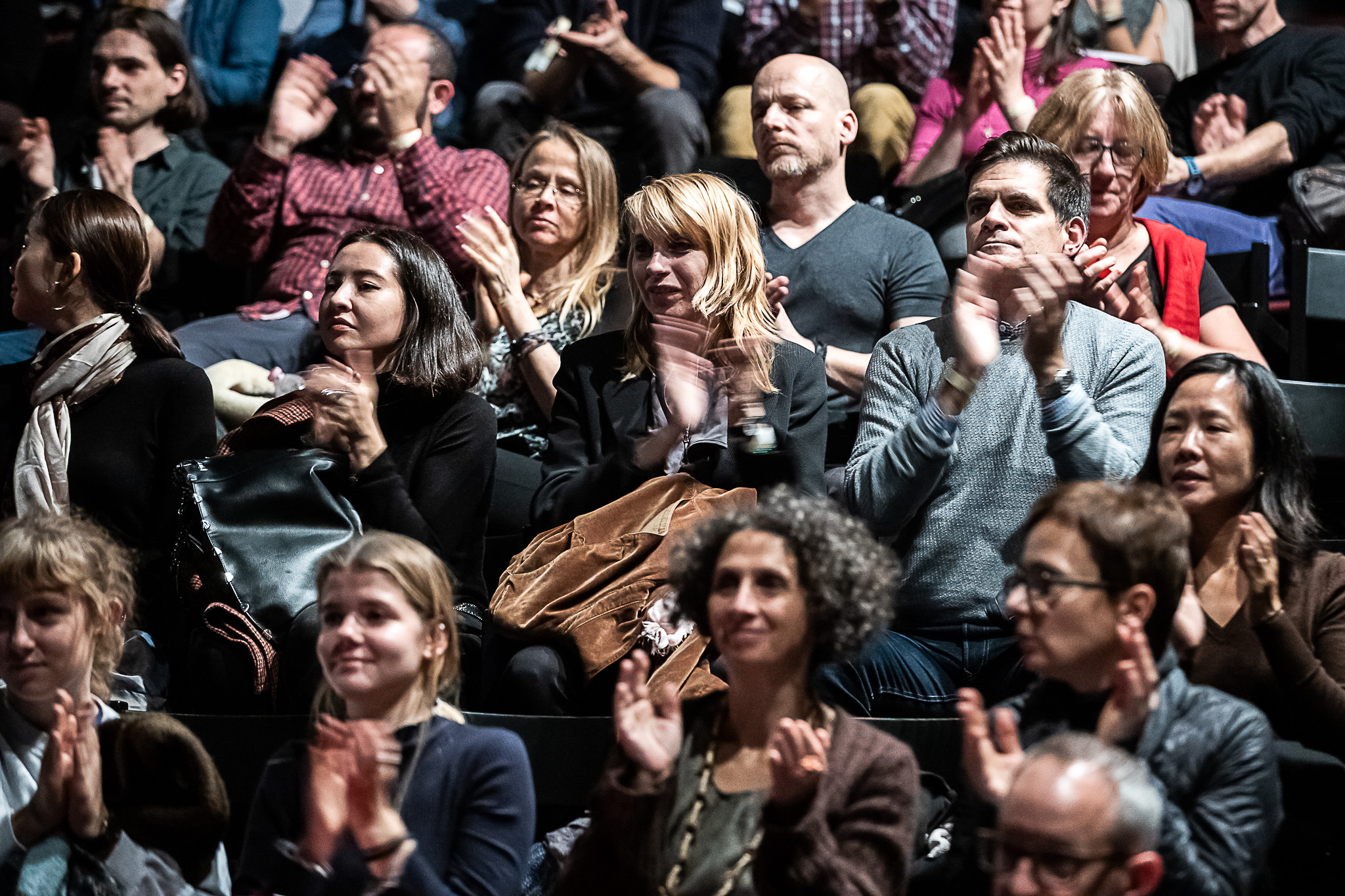
When I started preparing for my opening speech, a woman shared a photo of her face on social media. She wrote about how her partner abused her. She survived and reached the hospital, which filed a complaint against him, but her face will forever carry the marks of his deeds. The shocking images were meant to show that the woman had to save herself, pulling herself from her own hair—the hair her partner had also pulled—and managing to get away at the last moment. She uncovered her wounds to save herself. She and others who bear similar wounds and face a similar fate. Showing, pointing out the wound. This is of the utmost importance.
Saint Thomas also did this: he put his hands into the wounds of Jesus. Saint Thomas, the doubtful and pensive believer who longed to experience something real. He might have been the first investigative journalist; putting his hand into the wound, doubting and believing at the same time.
Showing our wounds means exposing a visible surface. The art of documentary takes us places we couldn’t otherwise reach. Instead of the threatening chaos and non-understandable connections and networks, it provides us the possibility of knowing, understanding and experiencing.

Fotó: Zoltán Adrián
I am certain that the stories that the festival brings forward concern us. Be it through the story of a single person, or through a problem encompassing the globe, or the worlds in between: stories of bigger or smaller communities, villages or cities, issues and problems concerning a country.
But why should we care about an orphanage in Malawi or one talented young boy’s chances in life? Or the callousness of the Romanian health care system? Or the story of Lili, a woman of the 1956 Hungarian revolution who fled to Australia leaving her child behind, and the story of young Lili, the child left behind. Why is any of this our concern? What are the boundaries of this “us”, I might ask. The boundaries of my community, my religious community, or the place where I live? The boundaries of my country, my nation? The borders of Europe?
These films tackle the meaning of “us” while making that community visible. There is a human community that we belong to and that we are also shaping. The film that focuses on corruption in the Romanian health care system helps us identify our own cases of corruption, and the youngsters who fall victim to corrupt systems are losses affecting us all. The faith of the orphans in these films reveals the faith of our own orphans. In the story about asbestos we can discover the past of a factory that closed down in our own neighborhood.
This “us” is the common denominator of this festival. This “us” helps us experience our shared humanity and helps us overcome divisions created by borders, religions, and the color of our skin, created between East and West, Europe and Asia. The paradox is that by revealing differences, the stake becomes respecting them; respecting the other human being becomes the real stake here–the real issue of human rights.

Fotó: Balázs Ivándi-Szabó
The film Buddha in Africa shows us a young boy, Enock, growing up in an orphanage in Malawi that is operated by a Buddhist Chinese community. Enock receives a new name, a Chinese one. The caregivers talk to him in Chinese. He starts practicing Buddhism and kung-Fu, and these are the best things that can happen to him. Meanwhile, he slowly falls out of the culture he was born into and becomes estranged from his mother tongue. His life chances outside of the walls of the orphanage are extremely limited. The paradoxes of current models of colonization become visible the way they have throughout the history of humankind, in a single, contemporary story, in a single life, shown in Nicole Schafer’s film.
I am certain that meaningful works always make the invisible visible. But for this invisible to reveal itself, we need to get closer and examine deeply, thoroughly, the visible, the real. But what is real? This era of post-truth and fake news fills us with anxiety. What is the reality we can believe? These films wouldn’t exist if their creators weren’t certain that there is truth and reality worth uncovering and investigating.

Fotó: Zoltán Adrián
The invisible truth that can be approached in complex ways and can be made visible by investigating reality thoroughly, using magnifying lenses that bring shocking truths closer, like in the Romanian movie, Colectív, by Alexander Nanau. What the lens magnifies will become an unbearable truth.
The invisible is slowly unraveled, not always by a targeted investigation which is rather guided by chance, but with a sole purpose: to understand and make us understand something— something we call truth. When the Romanian journalist is asked on a TV show, apparently with the purpose of silencing him, who he works for, he answers—clearly understanding the question to mean what is the purpose of uncovering the truth—truth itself.
Films undergo a long journey, with lots of waiting, turns, disappointments, as in all cases of searching for something. The story does not foretell its own revelation. We need to wait for it. The Romanian film shows us moments of desperation, of halts and pauses. When they almost reach the core of it, they suddenly find themselves far from it. When the journalists seem to be uncovering something, a Minister holds a press conference to announce that everything is all right and that everything was in order with the hospital’s sanitation evaluation.
The good news is that we are not even half-way through the movie.
What becomes visible is the unimaginable complexity of it all: the connections, their hiddenness—everything that cannot be said in a long and complex sentence, only in a film of 90 minutes. What or who stands behind it all cannot be pinpointed, as this is such a complex system.
The stories that unfold in front of us are wounds, a long series of wounds. These stories tell us a lot about the world we live in, and I am certain we can be happier and richer after we have faced them. We stand with a chance of getting to know, understand and experience. We peek behind the chaotic surface.

Fotó: Zoltán Adrián
Finally, I would like to thank the creators for their work, which enriches us. I would also like to thank the distributors, organizers, and volunteers who worked to bring these films to viewers. More and more viewers if possible. Viewers who live far from the center of physical and spiritual privilege, and who still want access to such defining content.
I wish us all an enriching festival experience.
Tompa Andrea
